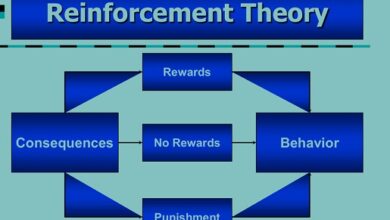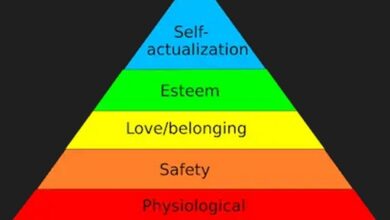Emotional wellbeing what it is and how to improve it
Emotional wellbeing
Nowadays it is not easy to feel good about yourself and your surroundings. Therefore, it is important to talk about emotional wellbeing, that is, what we can do to enhance positive or pleasant emotions and put aside negative or painful ones.
How to improve your emotional wellbeing
At beneath we will let you know about how to improve your emotional wellbeing.
1. Accept the pain
How can emotional well-being be achieved? First, the most important thing is to accept that we are human beings and that we experience emotions of all kinds, both pleasant and painful. This acceptance is fundamental because it is what allows us to achieve emotional well-being . However, many people have rejected this acceptance to avoid feeling pain, as they associate it with weakness and this is generally not pleasant.
Even so, if we reflect a little, we will realize that, despite the pain that painful emotions generate in us, they are not so bad and it is worse not to experience them than to face them. Who loses a loved one and doesn’t feel sadness? It’s impossible not to feel anything.
The great Lebanese poet Kahlil Gibran wrote “her joy is her version unmasked and the well from which her smile wells has often been filled by her tears”, and how else could it be? The deeper the pain in your being, the more joy it can contain”. In the poem he is referring to those people who are able to feel and overcome painful emotions will be more able to feel and enjoy pleasant emotions fully. In this article you will see how control emotions , whether pleasant or unpleasant.
2. Be grateful
If you want to improve your emotional well-being, it is essential that you are a grateful person, either with yourself or with others. Gratitude is a wonderful pill to have a more pleasant emotional life and it is very important to appreciate everything you have. In fact, the meanings of appreciating include that, on the one hand, a person shows and expresses gratitude to another for the esteem he has for her and, on the other hand, it also means to place value on the other.
Therefore, being grateful means starting a process of personal decentralization , that is, ceasing to be the center to give more importance to others. Psychologist Robert Emmons, a leading researcher and author of books like Thanks! and The little book of gratitud , states that putting gratitude actions into practice generates emotional well-being, improves personal relationships and allows identifying what is relevant in each person’s life.
The result of giving thanks requires previously identifying what are the things for which you want to give thanks, and then express them in the form of a thought or in writing. It is important to know and remember them continuously.
3. Let emotions flow
If your goal is to achieve emotional well-being, it is imperative that you accept that painful emotions are part of human nature. You must be willing to feel them in order to overcome them, but how to do that? If you want to overcome, you must make them flow and not settle inside you. We tell you how to do it below:
- Talk about it : people have the need to explain what hurts us in order to free us and get it out of our interior.
- Write about what you feel : another way to overcome painful emotions is to write about them. A much more effective practice than expressing them verbally. Writing about things that hurt is very healing and makes the pain go away little by little.
4. Write what you feel
We usually often remember positive or pleasant emotions. We have fun with them, because our minds don’t differentiate between real experiences and memories. In this sense, having good memories is a great treasure for future happiness.
On the other hand, when it comes to overcoming negative emotions, it will be good to talk or write about them. There is a very popular phrase in positive psychology, whose origin is unknown, which says: “Pain is inevitable, suffering is optional”. This sentence perfectly explains the two ideas we have just exposed.
5. Be aware of the relationship between feelings and emotions
One of the most important aspects of improving emotional well-being is the relationship between thoughts and emotions. Cognitive psychology deepens this aspect. The idea is to accept that there is such a relationship and that both thoughts and emotions influence each other, so we have the opportunity to control thoughts.
For example, if it is said that 90% of the thoughts that worry us are never produced, then why have them? In other words, we can try to control our thoughts so that they don’t cause us painful emotions. This idea is also known as “reimagining the situations” we live in to change what we think, and ultimately, what we feel.




